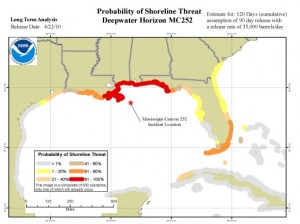Massachusetts Congressman Richard Neal would like to impose taxes on foreign reinsurance companies and that means scarcer and more expensive risk capital for small businesses. Reinsurance companies are the ultimate providers of risk capital as they back-stop the risks of primary insurance companies. Consider what happens when a hurricane strikes Florida, for example, causing $10 billion in insured losses. The insurance company likely has reinsurance protection in place to spread the risk, thereby increasing capacity and lowering costs. If the insurer had to bear the losses itself, it would have less risk capital to underwrite policies. Imposing a special tax on reinsurance raises its cost, making insurance less affordable to small businesses. Any reduction in reinsurance capacity increases the vulnerability of communities particularly prone to catastrophic risks, such as coastal communities and large cities. Foreign reinsurance providers are of particular concern to the small business community as they provide two-thirds of the reinsurance coverage purchased by U.S. property-casualty insurance companies. We rely on foreign capital to make our economy hum. Imposing a discriminatory tax on reinsurers is counterproductive for the U.S. economy and its small businesses.
Proposed Reinsurance Tax
July 6th, 2010NOAA’s Oil Spill Scenario
July 5th, 2010The National Oceanic and Atmospheric Administration has performed a simulation analysis on the possible dispersions of the oil spill, assuming leakage of 33,000 barrels per day that continues for 90 days. NOAA believes that under this scenario, there is an 80% probability that the oil slicks will move east of Florida and then north, effectively going around the peninsula into the Atlantic Ocean. There is a 20% chance that the oil spill could continue north up the Atlantic as far as Charleston, South Carolina, while also dispersing to the west to travel as far as Corpus Christi, Texas. In the worst-case scenario, to which NOAA assigns a less than 1% probability, the oil slick could spread down to southern Mexico and the Caribbean region. We really should have immediately accepted the offer of the Netherlands to contain the spill quickly using their technology. Washington’s dithering and blame game puts our own interests and the interests of other countries at risk.
Happy Fourth of July!
July 4th, 2010This year the annual Macy’s fireworks were held on the Hudson River, to the west of Manhattan, rather than the East River, on the other side of Manhattan, so I had the perfect view. At about 7:00 p.m., boats began moving up the Hudson to try to position for optimal viewing.
Unfortunately, my photographs of the fireworks and of the boats didn’t come out well. So I am substituting what I think is a better picture: that of a U.S. Navy ship sailing out of the Hudson River after the holidays. Notice the crew in their white uniforms all standing at attention as they prepare to sail past the Statue of Liberty. I have made a commitment to renew my sailing lessons this summer. It is a waste to be here and not take full advantage. And I need to renew and refresh with a work break from time to time. Happy holidays, everyone.
Getting Sick from Medical Identity Theft
July 1st, 2010Just when you think that the electronic society couldn’t become more inhuman, the U.S. Federal Trade Commission, our over-burdened consumer protection agency, alerts us to signs of medical identity theft:
- You are billed for medical services that you never received.
- A debt collector contacts you about medical debt you don’t owe.
- Your credit report shows medical collection notices that are unfamiliar to you.
- Your health insurer denies your legitimate claim for medical benefits, stating that you have reached the limit allowed under your plan.
- You are denied insurance coverage because your medical records reveal a pre-existing condition that you don’t have.
Misuse of your identity can arise from dishonest staff in medical offices filing fraudulent insurance claims with your information or someone has been using your insurance information to obtain medical treatment, which can harm your health as well as your finances. The imposter’s medical information, such as his diagnosis of his condition, may appear on your medical record, exposing you to the risk of improper treatment, possibly leading to injury, illness or death.
In addition to being vigilant about protecting your personal documents, examine your explanation of benefits sent to you each time your insurer pays a claim on your behalf. I used to discard those without reading them. I don’t do that any more; now I look at them carefully and when I discard them, I use a document shredder.
Small Business and Economic Development
June 30th, 2010Harvard Professors Edward L. Glaeser and William R. Kerr caution policymakers to refrain from “smokestack chasing”, or using tax breaks to attract large corporate employers. Their research shows that regional economic growth is highly correlated with the presence of many, small entrepreneurial employers, not a few large ones. In the July-August 2010 issue of the Harvard Business Review, they cite a study of U.S. metropolitan regions that shows that cities whose numbers of firms per worker were higher than average in 1977 experienced 9% faster employment growth in the two decades that followed. They write:
“Politicians enjoy announcing a big company’s arrival because people tend to think that will mean lots of job openings. But in a rapidly evolving economy, politicians are all too likely to guess wrong about which industries are worth attracting. What’s more, large corporations often generate little employment growth even if they are doing well. Automakers, for instance, often source parts and other inputs from their internal networks, which limits employment spillover effects. Or a firm may fill staffing needs by transferring employees. Instead of trying to buy their way out of the recession with one big break to one big employer, politicians should reduce costs for start-up companies and small businesses. Research shows that once entrepreneurship gets established, it tends to be self-perpetuating.”
What I particularly enjoyed about their piece in HBR was the plot of small firms vs. entrepreneurial growth by city. Cities like Colorado Springs and Sarasota appear to be hotbeds of entrepreneurial activity, while New York City, which offered every kind of tax break and subsidy to Wall Street, was ranked near the very bottom.
Low-Cost Marketing In a Tough Economy
June 29th, 2010Queensboro Shirt Company, an online corporate apparel company in Wilmington NC, conducted a national survey of 3,700 of its small business customers. They found that their employees regard corporate logo shirts as a status symbol of sorts, a sign of gainful employment in a rough economy. Even better, the shirts advertise employment with a small business at a time when large corporations have lost the public trust. “It used to be that I would only wear a company shirt if I had to, otherwise it would hang in my closet collecting dust,” says Nicole Volpe of Elle Hair and Spa in Raleigh, NC. “But I’m happy to have this job right now, I’m proud of where I work, and I’ll wear our shirts just about anywhere.” Queensboro claims to be the first to put a company logo on a collared shirt, twenty-eight years ago. Admittedly the survey has inherent bias: the company polled its customers who had already purchased its shirts, not a random selection of small businesses. Nevertheless, I was intrigued to read that employees would wear corporate-branded items in social settings outside of the workplace. It is a low-cost advertising option that I had not considered.
Let’s Reach Out and Be Aware
June 28th, 2010Allen “Rookie” Kruse, the 55-year-old charter fisherman who lost his livelihood in the Gulf Coast, committed suicide last week. He is the first known casualty of the disaster after the oil rig workers who lost their lives in the explosion. The psychological effects of disaster can be severe and unexpected. The morale in the Gulf Coast is admittedly low and those who are vulnerable, perhaps with prior addictions or other emotional issues (although there were no such issues in Mr. Kruse’s past) need special care. We respond very differently to disasters that are acts of God and acts of man. The latter appears to be more painful to the survivors, perhaps as we struggle to interpret what happened and what our fellow human beings did. In Prepare for the Worst, Plan for the Best: Disaster Preparedness and Recovery for Small Businesses (Wiley, second edition paperback 2009), I wrote (page 195) “Now I am going to make a politically incorrect statement. Be attentive to the emotional needs of the men in your life. I was impressed by the men in my life and how many of them suffered silently and perhaps put themselves at greater risk of illness and injury …. sometimes we forget the difficult burden of masculine conduct, so listen carefully and be particularly attentive to the men in your life, who may have needs that they are too embarrassed to admit.” And some of these reactions may be very delayed. So let’s do what we can to reach out and offer support.
IRS Provides Advice on Oil Spill Payments
June 27th, 2010On July 17, the Internal Revenue Service will hold a “Gulf Coast Special Assistance Day” in four states: Alabama (Mobile), Florida (Panama City and Pensacola), Louisiana (New Orleans, Houma and Baton Rouge) and Mississippi (Gulfport). The intent is to address questions related to tax liabilities arising from compensation for losses incurred in connection with the Gulf Coast Oil spill. “This is a very difficult time for many people affected by the oil spill in the Gulf of Mexico. As residents of the region cope with the evolving situation, I want to assure them that the IRS will be doing everything it can to provide tax help to those who need it,” IRS Commissioner Doug Shulman said. “We encourage anyone who has an issue with the IRS to contact us and explain their hardship, and we will work with them to find a solution. We’ll do everything we can under current law to help taxpayers.” The IRS has published guidance on its website to explain that BP payments for lost income are taxable as the payments replace wages or business income that would otherwise be taxed. Reimbursement for property loss is generally not taxable. The IRS is setting up a toll-free telephone hotline to answer taxpayers’ questions in these matters. Gulf Coast residents should also be certain to ask about the deductibility of uninsured or unreimbursed losses.
Good News and Bad News from the Insurance Industry
June 26th, 2010This week the property-casualty industry reported some good news and some bad news. According to the ISO and the Property Casualty Insurers Association of America, the industry returned to profitability, reporting a 6.7% return on policyholder surplus for the first quarter this year, a marked improvement from the 1.2% loss from the first quarter of 2009. The industry-wide results would have been even better, but for steep losses reported by mortgage and financial guaranty insurers.
“This is further proof that home, auto, and business insurers are fiscally sound, that we have been strong and stable throughout the economic downturn of the last two years, and that we are able to pay claims to policyholders during their times of need,” said David Sampson, PCI’s president and CEO. “With experts forecasting an active hurricane season, the $102.9 billion increase in policyholders’ surplus from $437.8 billion at the end of first-quarter 2009 to $540.7 billion at the end of first-quarter 2010 provides us all with an extra measure of confidence that insurers will be able to fulfill their obligations to policyholders when the wind blows. Nonetheless, it only takes one storm like Hurricane Ike in 2008, Hurricane Katrina in 2005, or Hurricane Andrew in 1992 to disrupt millions of lives and cause tens of billions of dollars in property damage. And this means now is the time for all of us — insurers, businesses, public safety officials, elected leaders, and the general public — to prepare for hurricane season to minimize the human hardship and economic loss in the event of a natural catastrophe this year.”
But the news isn’t all good, either for the industry or the businesses they insure. The property-casualty insurance industry returned to profitability, despite continuing declines in premium volume. Premium volumes have declined for twelve consecutive quarters.
“The 1.3 percent decline in net written premiums in first-quarter 2010 reflects the ongoing consequences of a once-in-a-generation economic storm. In first-quarter 2010, seasonally adjusted total private-sector employment fell 2.7 percent compared with its level a year earlier, private-sector wages and salaries dropped 1.4 percent, and the average unemployment rate rose to 9.7 percent from 8.2 percent in first-quarter 2009,” said Sampson. “This challenging economic environment reduces demand for insurance. Nonetheless, our industry remains stable and is financially well positioned.”
I am concerned about declining premium volumes. Understandably, businesses and consumers are looking for ways to reduce expenses in this difficult economy. But foregoing insurance coverage may be shortsighted. I have met homeowners in Rhode Island who stopped their flood insurance once their mortgages were paid off, only to suffer major financial losses when the record floods struck the state earlier this year. If you are buying insurance only to satisfy a lender’s requirements, you need to seriously reconsider your risk management strategy. An uninsured loss will only increase financial stress and it will be too late to go back and reinstate insurance coverage retroactively.
Ready for All Risks
June 25th, 2010 This week, a 5.5 magnitude earthquake struck Canada, with its epicenter at Ottawa, Canada’s capital city. Tremors from the quake were felt as far away as Ohio, Vermont and New York City. With attention justifiably focused on the developments in the Gulf Coast, this event was largely overlooked. But it serves as an important reminder to train all of your employees on the basic response to each major natural disaster, even if you believe that your business is located in a “safe” area. After all, we typically associate earthquakes with California or Japan, but that is not a safe assumption. Indeed, businesses in those locales are more likely to be familiar with safety procedures as they recognize the risks.
This week, a 5.5 magnitude earthquake struck Canada, with its epicenter at Ottawa, Canada’s capital city. Tremors from the quake were felt as far away as Ohio, Vermont and New York City. With attention justifiably focused on the developments in the Gulf Coast, this event was largely overlooked. But it serves as an important reminder to train all of your employees on the basic response to each major natural disaster, even if you believe that your business is located in a “safe” area. After all, we typically associate earthquakes with California or Japan, but that is not a safe assumption. Indeed, businesses in those locales are more likely to be familiar with safety procedures as they recognize the risks.
You can reduce the risk of injury due to tremors or other seismic activity by bolting heavy furniture to the office walls and ensuring that drawers and cabinet doors securely close, so that they don’t spill their contents out. I have a very heavy desk and wall unit which I bolted to the walls as I didn’t want the items to tip and fall on someone. Thankfully, I have not experienced an earthquake in my office, but as the tenants above me often stomp around and blast their stereo system, I often do experience the walls shaking, so I am glad to have taken the precautions!






